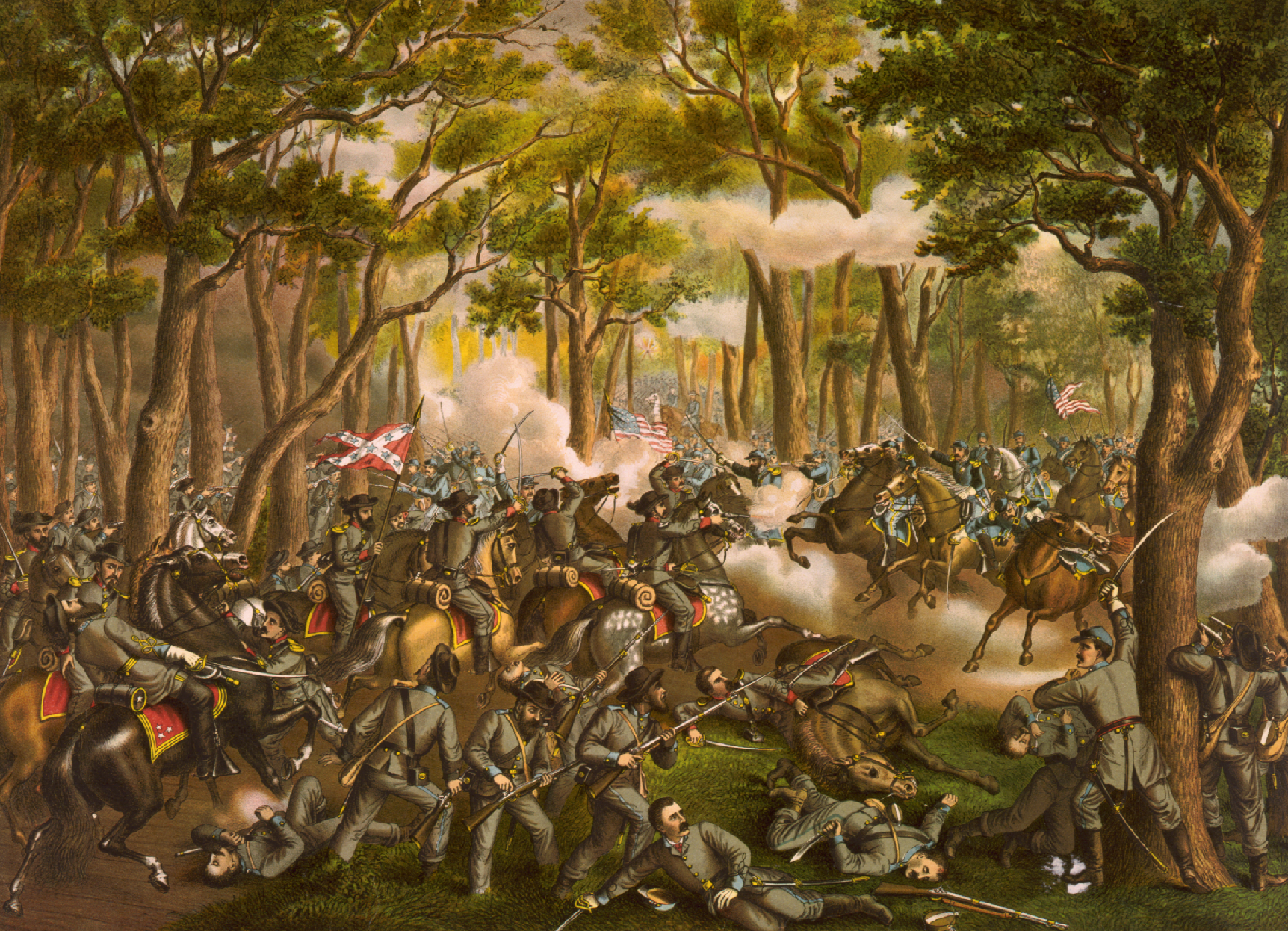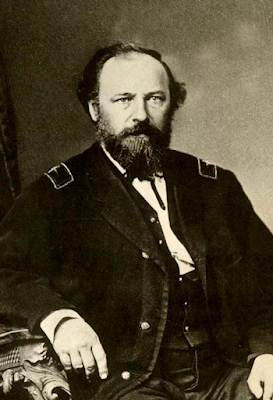When Ulysses S. Grant became commander of all Federal forces at the start of 1864, he chose to personally oversee operations in Virginia, practically commanding the Army of the Potomac (General George Meade was still the technical commander, causing tension among the Union leadership). The ensuing campaign, which lasted through May and most of June, was a constant, hellish series of battles that saw high casualty rates among both Federals and Confederates.
Battle of the Wilderness

The Wilderness is a wooded area. In fact it is part of the terrain over which the Battle of Chancellorsville was fought. Grant planned to get around Lee by quickly penetrating the dense forest. General Lee, however, blocked him on May 5 and a confusing and bloody battle ensued. It looked like the Federals would push through anyways on May 6, but reinforcements under General James Longstreet stopped them. The weather was dry and the vegetation caught on fire, burning many of the wounded alive. Tactically the Wilderness was a Confederate victory, but Grant simply marched his arm southeast and continued the campaign. His plan was to wear down Lee’s force through sheer attrition, as the North could much more easily replace its losses.


